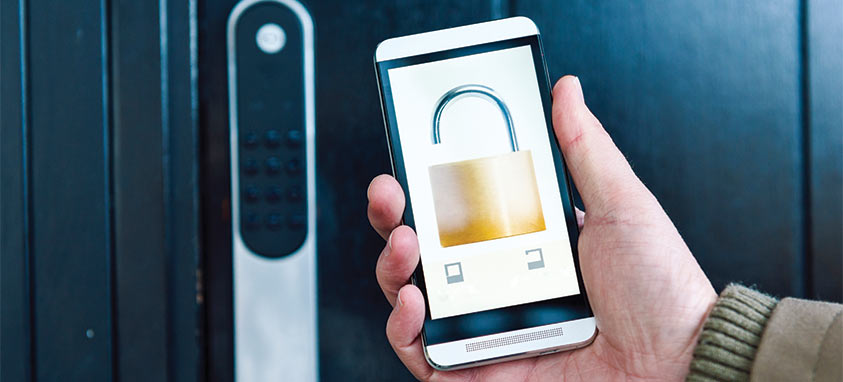How check-ins by phone and electronic keying affect attendees and events
One of the hotel industry’s most recent technological advances is reaching a critical mass in 2016, and meeting professionals must consider how it will affect the experiences at their events in the near future. We’re talking about the ability to check into hotel rooms and obtain keys through mobile devices, which eliminates the need to stop at the hotel’s front desk upon arrival.
Since late 2014, Starwood Hotels & Resorts has offered this option to Starwood Preferred Guests at dozens of Element, Aloft and W Hotels, with adoption by the Westin and Sheraton brands to come, though no timetable has been announced.
As for the various hotel brands under Marriott International (which acquired Starwood in November), there’s no announced time frame for the digital check-in and keying option. But Alison Taylor, senior vice president of global sales for Starwood, told Smart Meetings that “one key reason you saw [Marriott CEO] Arne Sorenson wanting to purchase Starwood is because of our innovation, and keyless entry is right up there with that.” Much wider adoption across the entire company is likely not far off.
What’s more, Hilton Worldwide now offers HHonors members the ability to select a room, check in and download a digital key to a smartphone at more than 170,000 guest rooms in 250 properties among the Hilton, Waldorf Astoria, Conrad and Canopy brands.
How It Works
While participating guests can check in and select a room early on the day of arrival, a key only becomes active on the guest’s smartphone once the room is available; as the guest approaches the room, he or she simply presses the virtual “unlock” button on the hotel company’s loyalty-program app to access the room. The security of electronic keying relies on encrypted coding that works exclusively on that guest’s mobile phone for that specific room.
Starwood and Hilton have retrofitted door locks to accept both electronic and traditional keys, allowing for guest preference. Dana Shefsky, director of digital product innovation for Hilton Worldwide, notes that guests assess the check-in line upon arrival, and then can opt to use their smartphones to get an electronic key and be on their way.
Having an electronic key means that attendees don’t have to worry about losing a physical key card or inadvertently deactivating it because their mobile phone shared the same pocket. And while an attendee’s phone could be out of power upon arrival at the hotel, just a few minutes of charging time is enough to make the phone usable for keying purposes.
Improving Attendee Experiences
Taylor says the pros and cons were discussed with frequent Starwood guests and meeting planners in North America, Asia and Europe who sit on the firm’s customer boards. “Overall, planners feel that the experience when attendees first get to the property is very important, so they are pleased that there no longer needs to be two distinct parts to arrival”—hotel check-in and event check-in. As a result, “planners can focus on creating a great welcoming experience in the event-registration area,” Taylor says.
Lisa Fall, director of conventions and meetings for the Texas Association of Health, Physical Education, Recreation & Dance, thinks that mobile check-in and electronic keying will be welcomed by most of the more than 2,000 attendees of her group’s annual convention. “We get waves of people arriving around the same time, and the hotels just don’t have enough personnel to keep the check-in lines from getting really long,” she says. “That’s always the main complaint on our attendee evaluations, so mobile check-in and electronic keys would really help us. Some of our people probably won’t prefer that option—but they won’t have to use it, and the check-in lines will be shorter for them because other people will use it.”
Fall thinks she’ll encounter more smiling faces coming to her event registration area. “We’ve always felt pressure to give our attendees a pleasant experience when they pick up their conference materials,” she says. In the future, she hopes that the experience doesn’t simply offset a tedious hotel check-in process.
One Size Doesn’t Fit All
Among smaller meetings, there might be instances where the electronic option won’t be best for attendees or planners.
“The question I have is if we would still be able to pre-examine rooms for VIPs,” says Jody Brandes, CMP, senior meeting partner for Genentech. “To do this, I get keys from the front desk and check those rooms to make sure the lights, ventilation and everything else work properly.”
Brandes then hands each VIP the keys to their rooms upon arrival. Further, if conference materials or gifts are to be placed in guest rooms ahead of arrival, then electronic check-in might cause room changes and confusion. Planners should communicate with attendees ahead of time as to whether electronic check-in and keying is preferable for a given meeting.
Aside from these minor issues, Starwood’s Taylor finds that hotel guests of every generation are interested in this innovation. “Attendees want to see that it’s not the same routine year after year at the meetings they attend, and this allows planners to have more creativity with the welcoming process, too,” she says.




